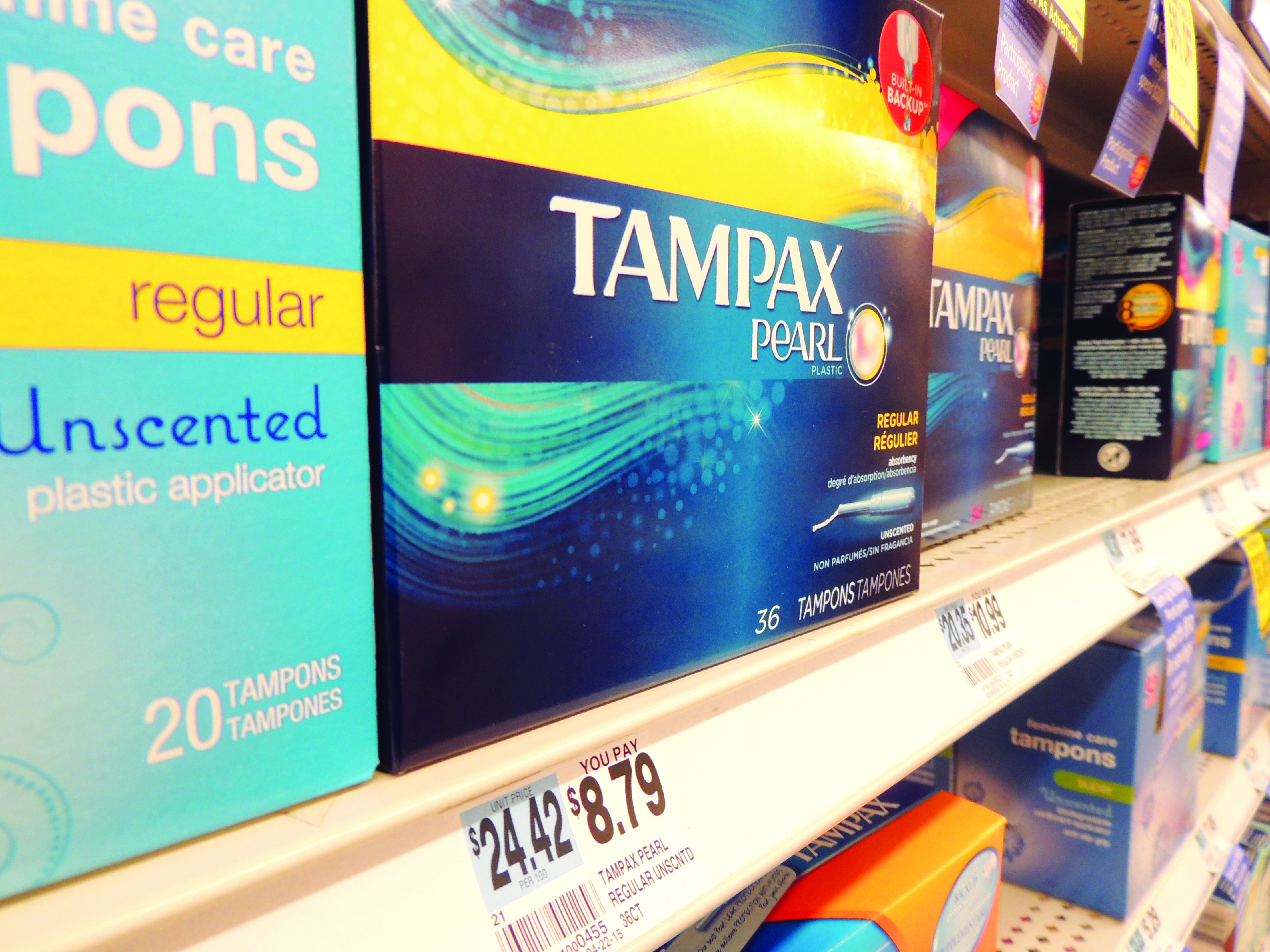In 2015, we saw more period stains than normal in the public eye. Granted, the private eyes of womyn have had those “oh sh**” moments trillions of times be fore, but in 2015 we saw Kiran Gahndi run the London Marathon without feminine hygiene products. We saw hashtags. We saw Rupi Kaur’s Instagram. We saw advertisements for womyn with their periods broadcasted on subway lines in New York. Progress was met with opposition and deeply rooted disgraces that have pinned the unabashed discourse surrounding period culture to the bodies of womyn came to harsh light.
Nonetheless, period culture is starting to slowly (emphasis on slowly) seep outside of womyn’s panties. Too graphic for you? Tough. Tell that to my fourteen-year-old self trying to plug myself up with cotton while trying to interpret a very
nondescript and mystifying diagram. Tell that to the girl afraid to get out of her seat for the stain that may be left behind. Tell that to the womyn over there with the dog trying to lick at her crotch. Tell that to the generations of womyn who have shed tears, faced prosecution, and lost their lives because of the stigmas and humiliations of the monthly discharge of the uterine lining. Or should we say “gift”? “The time of the month”? “The crimson tide”? “The parting of the red sea”? Yes, because those are funny and clever, but no because these nicknames make it seem as if we’re afraid to discuss it.
Let’s talk about how periods are getting political. No, I’m not talking about politicians trying to legislate the female body and reproductive rights. I’ll save that for another time. I’m talking about a package of legislation designed to ease access to feminine hygiene products. According to the Gotham Gazette, members of the New York City Council, led by Julissa Ferreras-Copeland, are introducing three bills at the city level within the next several weeks to make menstrual care products more accessible at public schools, shelters, and correctional facilities in a resolution that will call for the elimination of tax on these products.
The “tampon tax” classifies feminine hygiene products not as essential items but rather as luxury items. To be clear, toffee apples and edible sugar flowers are considered more essential than tampons. Recent failed initiatives in France to reduce value-added tax on feminine hygiene products and initiatives in Ohio, Utah and Virginia have legislation “seeing red.” An op-ed from Cosmo writer Prachi Gupta has and a subsequent Change.org petition against the “tampon tax.” Currently, in addition to the five U.S. states that do not charge a state-level sales tax, five states—Maryland, Massachusetts, Minnesota, New Jersey, and Pennsylvania—have exempted feminine hygiene products from their sales taxes.
When President Obama was asked in a Youtube interview with Ingrid Nilsen why forty other states still impose sales tax on tampons and sanitary pads, he stated that he hadn’t been explicitly aware that they were. Obama stated, “I suspect it’s because men were making the laws.” The tampon tax is not some flashy conspiracy against tampons or pads, everyone is usually, like it or not, much more comfortable when womyn are wearing them. Rather, it is an example of the structural underrepresentation and blatant dismissal of womyn’s needs and rights. Eliminating the tampon tax would be a step in the direction of the reevaluation of both public health services and in the recognition of womyn’s needs.
Get real time updates directly on you device, subscribe now.
Prev Post



